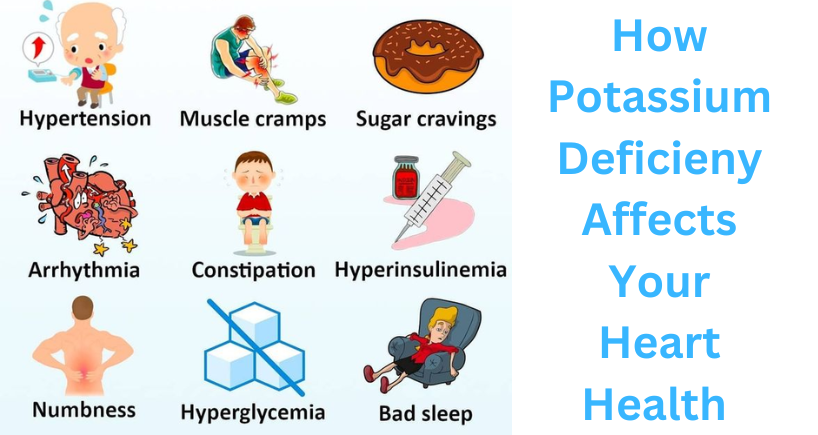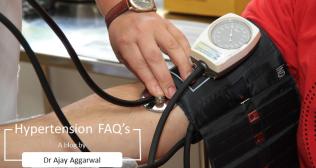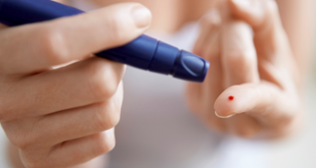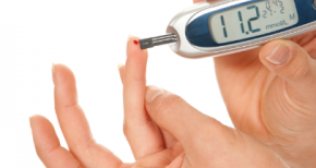
How Potassium Deficiency Affects Your Heart Health
Potassium is an alkali metal that serves both as a mineral and an electrolyte, which is important in fulfilling many bodily roles, including in the cardiovascular system. However, hypokalaemia, the scientific term for potassium deficiency, might not receive much attention, and this is dangerous to human health.
Role of potassium in heart health
Maintaining proper electrolyte balance, especially for the heart, is associated with potassium. The body uses it with sodium for the regulation of fluids and for proper neuronal and muscle cellular contractions. That means the adequate level of potassium means optimal contractility and relaxation of the heart muscle so that blood may flow steadily. When the levels of potassium fall below the normal levels, this equilibrium is upset, leading to possible arrhythmias.
Signs of low potassium levels
It is important to know what symptoms to look out for to prevent waiting until the potassium levels dip too low. Common symptoms include:
- Muscle weakness and cramps: For fibrillations to occur, potassium is very important for muscle contraction. The lack of potassium in the body can cause cramps or spasms, mainly in the legs.
- Fatigue: Abnormally high low potassium disrupts the manufacture of substances that supply energy, hence making you feel most washed out.
- Irregular heartbeats (Arrhythmias): Another potentially fatal sign is that the patient develops an abnormal or fast heart rate that deteriorates to fatal levels if diagnosis and treatment are delayed.
- Tingling and numbness: Mild potassium deficiency may impair nerve conduction and lead to the perception of the patient experiencing a tingling/numbness.
- High blood pressure: Depletion of potassium contributes to sodium retention and high blood pressure, one major cause of heart disease.
Effects of potassium deficiency on heart
- Arrhythmias: Among all the adverse effects of potassium deficiency, the most serious one is arrhythmia. Potassium aids in the regulation of electric impulses, which control the heartbeat. Inadequate potassium levels can cause irregular heart rhythm or palpitations, sensations of a racing heart or skipped beats and fluttering.
- Hypertension - Extent of risk: Potassium benefits blood vessels and makes them dilate, supporting blood flow. Generally, low potassium diets cause high blood pressure to proliferate, affecting the heart and leading to other diseases like heart attack and stroke and others.
- Heart failure: Elderly patients, especially those with heart problems, will therefore experience severe hypokalaemia, which has been known to reduce the strength of the heart muscles, which makes it difficult for the muscles to pump blood adequately. This condition may worsen and progress to heart failure, particularly in people with underlying heart ailments.
Other consequences of potassium deficiency
While the heart is a primary victim of potassium deficiency, the effects extend to other bodily functions:
- Kidney health: Moreover, potassium is very important in the maintenance of sodium-potassium balance in the kidneys. Deficiency may help reduce kidney function and lead to kidney stones.
- Nervous system: Potassium is involved in nerve impulse transmission and plays a big role in the body. That can cause nerve dysfunction, cognitive problems and mood swings.
- Bone health: The development of potassium deficiency for a long time causes the loss of calcium from bones, thus causing osteoporosis.
What causes potassium deficiency?
Several factors can lead to potassium deficiency, including:
- Inadequate dietary intake: Lack of enough potassium in one’s diet through fruits like bananas, oranges, vegetables like spinach and starchy foods such as sweet potatoes.
- Excessive losses: Potassium levels reduce when one has diarrhoea, vomiting or sweating beyond normal limits.
- Medications: They include diuretics and some antibiotics.
- Chronic conditions: Such diseases as chronic kidney disease and diabetes often interfere with potassium balance.
Preventing and managing potassium deficiency
To maintain optimal potassium levels and protect your heart health:
- Incorporate potassium-rich foods: Some of the foods that should be taken include bananas, avocados, beans and green veggies such as spinach.
- Limit sodium intake: Potassium deficiency is also precipitated whenever sodium levels increase. Therefore, potassium-sodium balance should be observed.
- Monitor medications: If you are taking diuretics and other potassium-lowering medicines, you should speak to the doctor instead about potassium medicines.
- Stay hydrated: It is also important in the regulation of the body’s electrolytes and minimises potassium loss in great amounts.
Conclusion
Potassium deficiency, a relatively unnoticed problem, proves to be very dangerous for the heart. Fluctuations in potassium, the life and death effect on the heart due to its deficiency, high blood pressure and other problems are certain to make everyone ensure that they take enough potassium. That means if you recognise potassium deficiency symptoms, then change your diet to potassium-rich foods to protect your heart and the rest of your body.



















